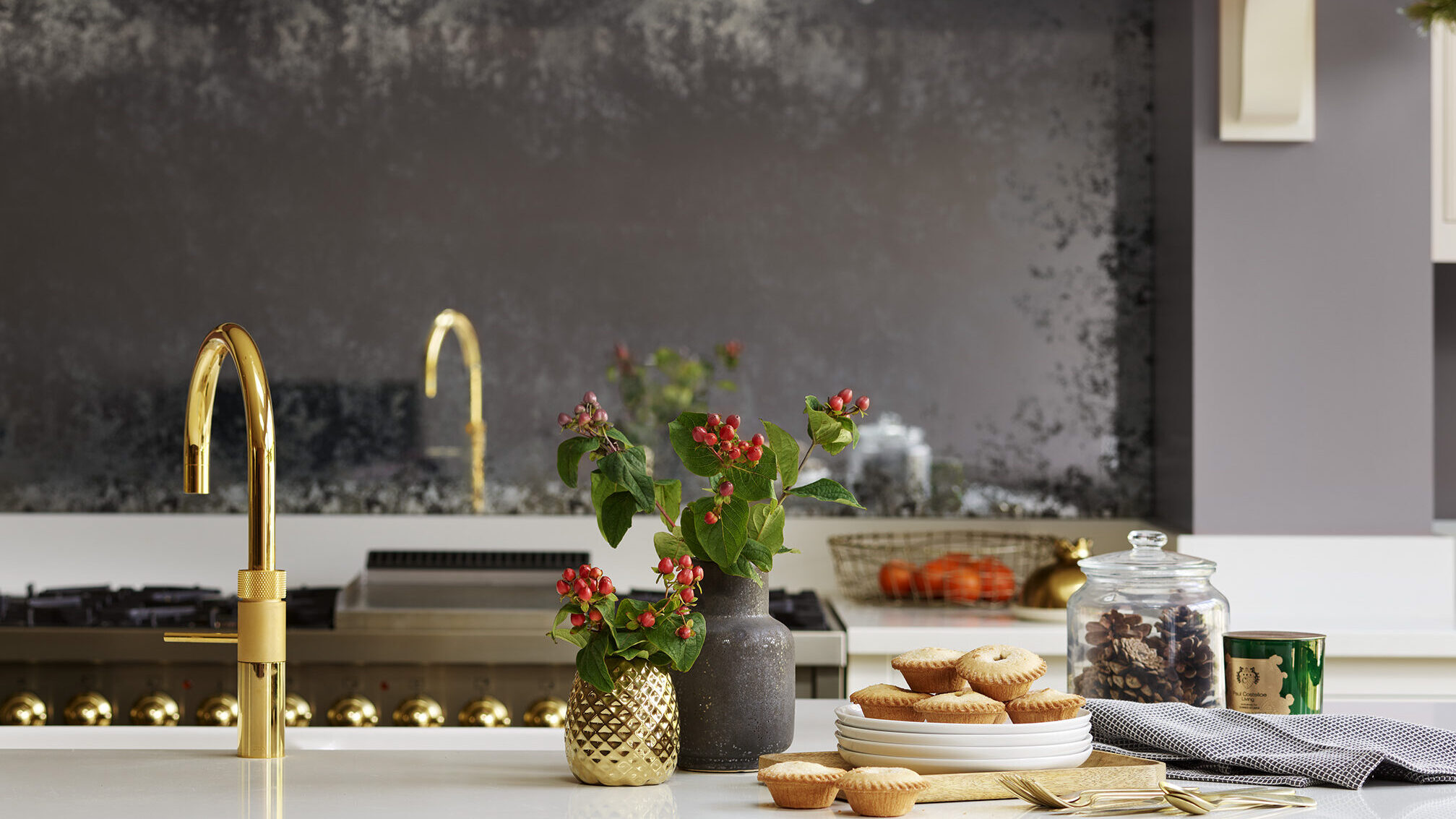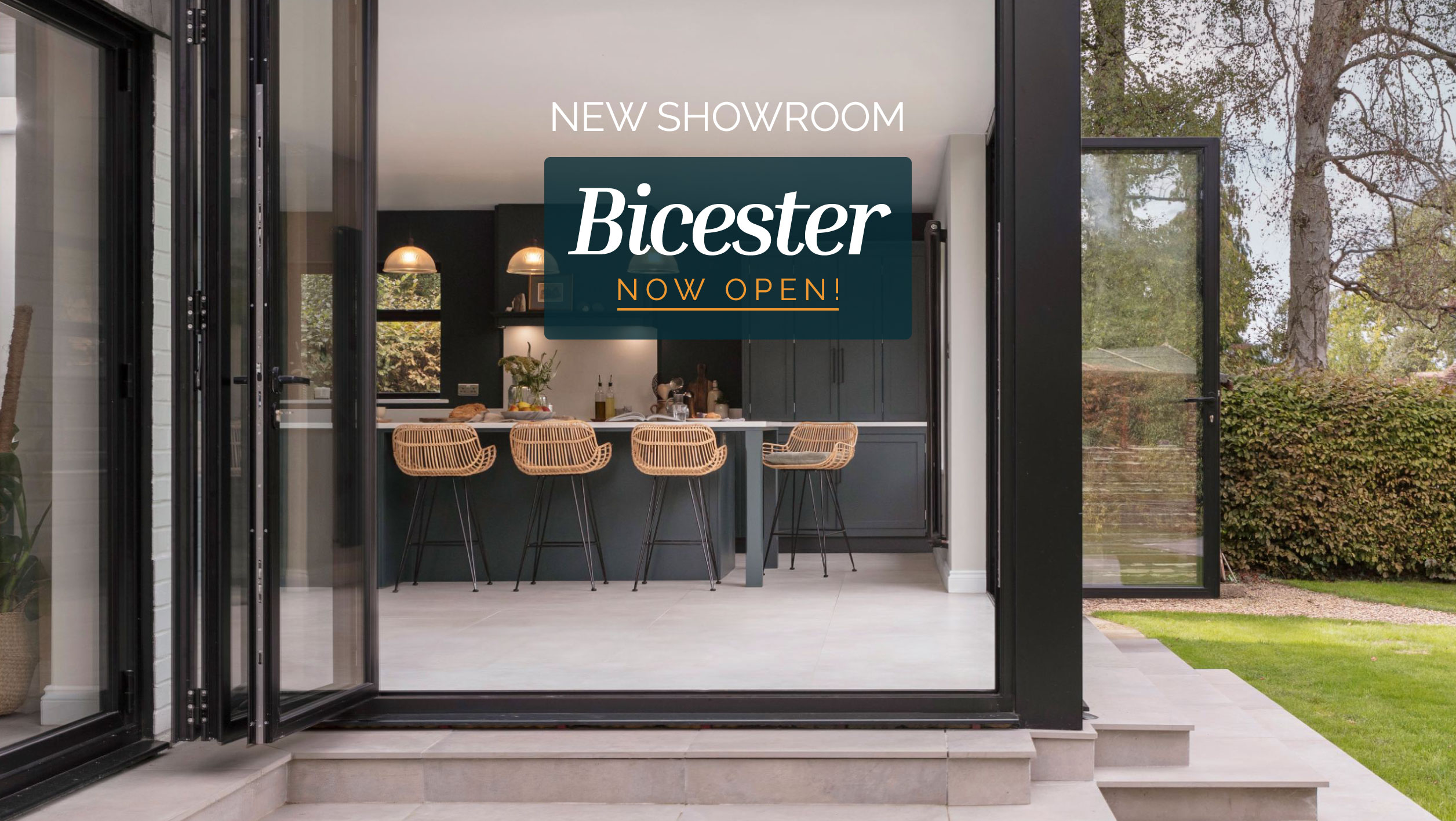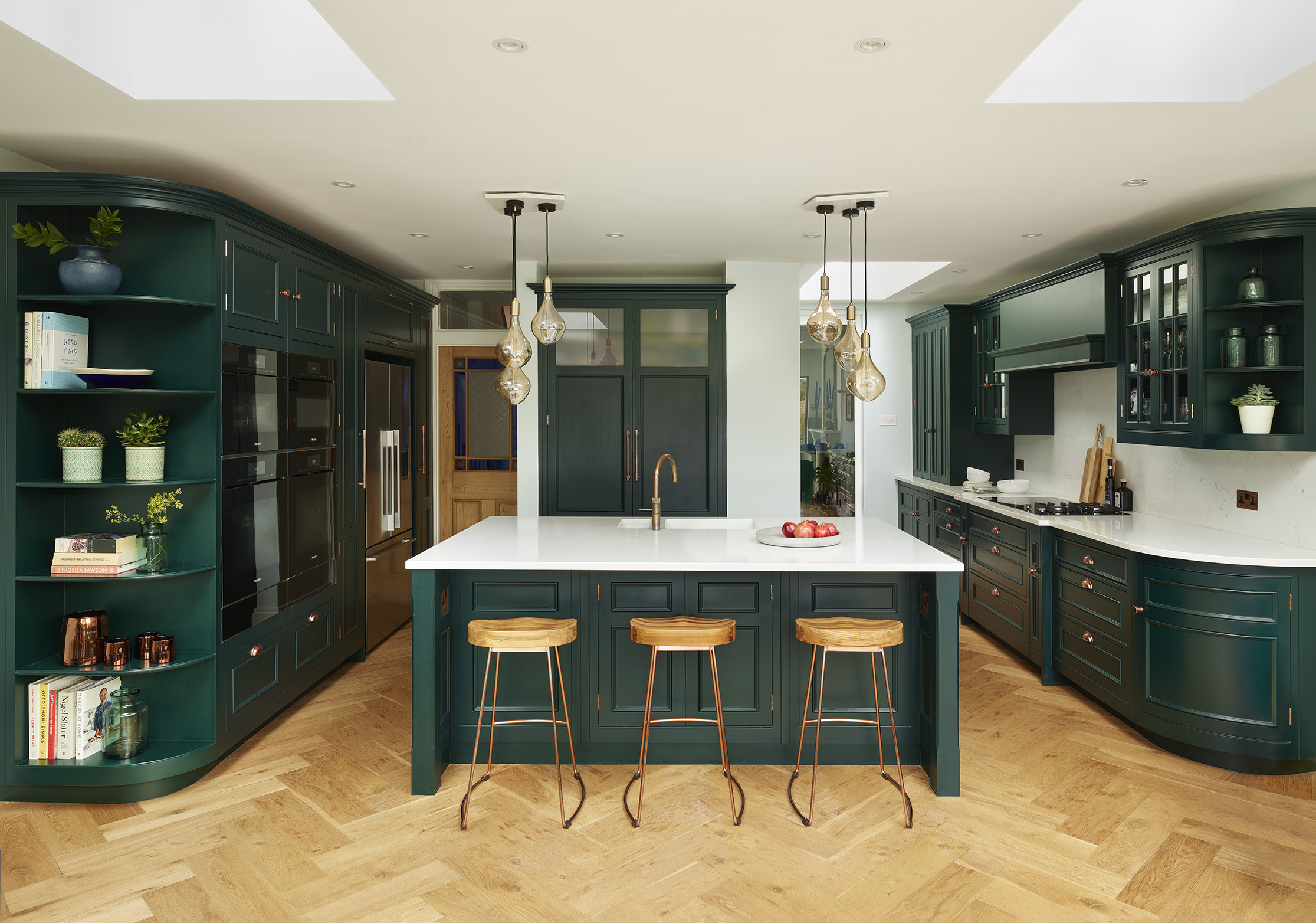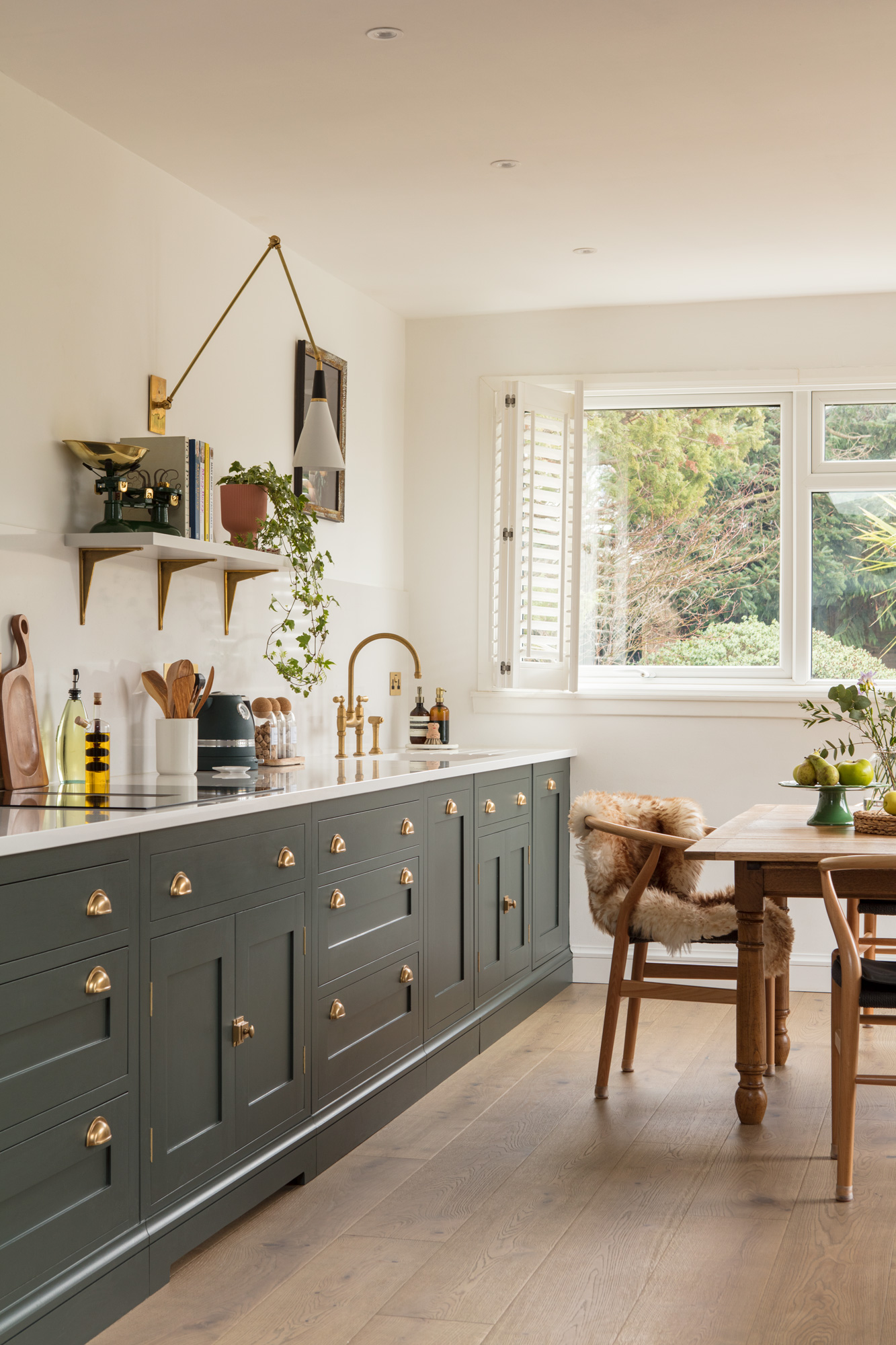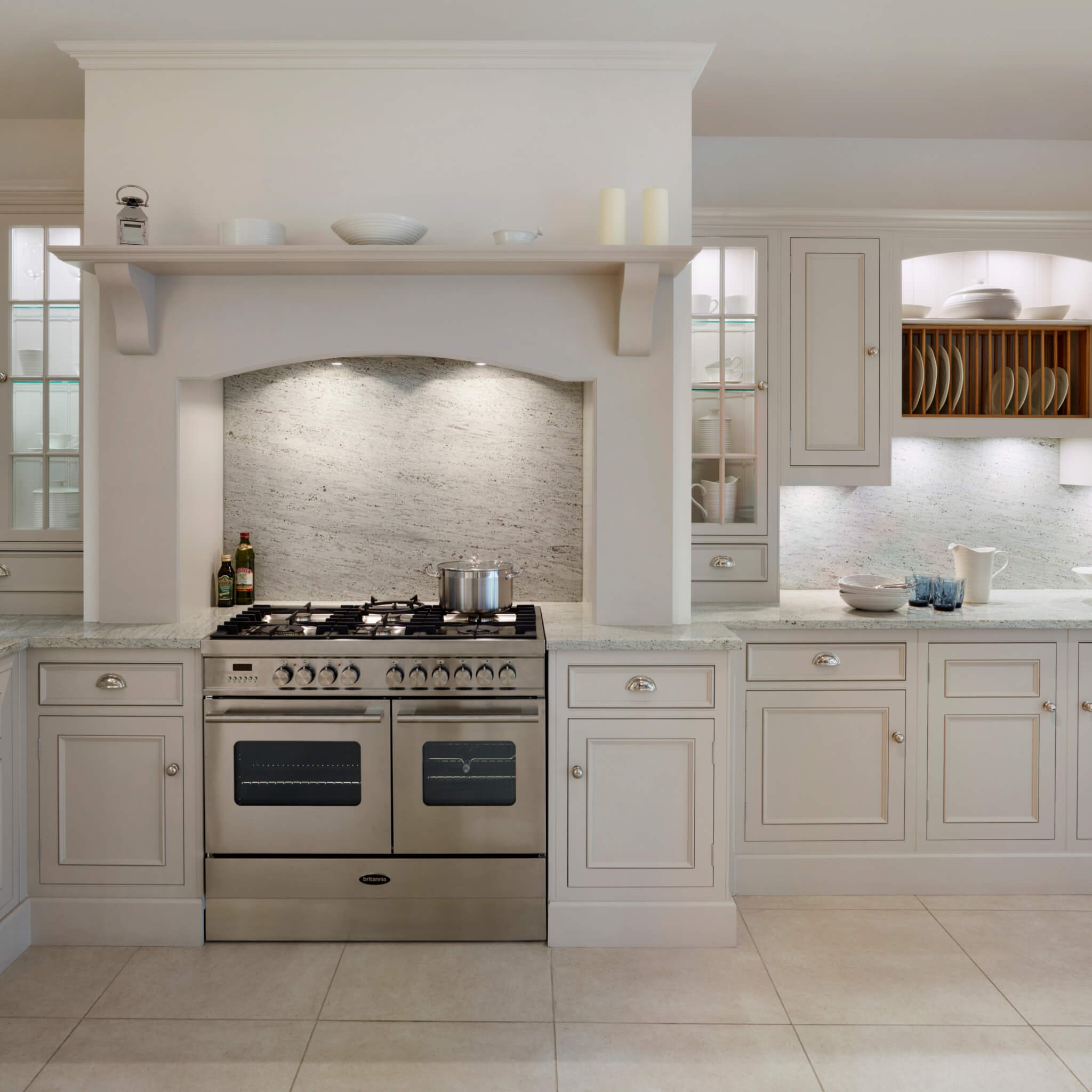
Splashbacks aren’t just there to protect your walls — their vast array of materials, colours and patterns can make a huge difference to your kitchen’s look. This is especially true for bespoke kitchen designs, where there are no limitations, and every element can be perfectly tailored to suit your style and requirements.
Whether you want a statement splashback, or something more practical for a busy family kitchen, we can offer something for everyone. Here are a few ideas to help you get started with your choices.
Splashback or tiles?
Once upon a time, rather than using a panel of material to protect kitchen walls, tiles were the only way to go. That’s no longer the case, as there is now such a wide range of splashback materials available. However, that doesn’t mean tiles can’t still be hugely effective. In fact, having previously made way for more modern alternatives, they’re actually back in fashion.
Tiles are extremely versatile, coming in a variety of shapes, sizes and designs, from modern mosaics to handmade rustic prints. This enables you to experiment with different configurations and patterns and is also a great way to add colour and personality to a neutral kitchen. You could use them to create a feature wall behind your cooker or fit brick-like metro tiles to revamp the mid-century modern style that’s currently in vogue. Alternatively, a dark grout can be very striking, and will require a little less maintenance than plain white.
Ensure you check the tile colour at different times of the day, under both natural and artificial light, to make certain you’ll be happy with the design 24/7.
Other splashback materials
If tiles aren’t up your street, these are some excellent alternative splashback materials:
STEEL SPLASHBACKS
Steel splashbacks are popular as the material is bacteria-resistant and relatively easy to keep clean. These can be bought as standard, off-the-peg panels that sit between the cooker and the kitchen hood, but if you want larger runs, choose made-to-measure ones. Also be aware that any imperfections or blemishes will be more apparent due to the shiny finish.
GLASS SPLASHBACKS
Glass splashbacks suit most kitchen types, particularly smaller spaces, as the reflective qualities help to increase light levels, and make the room look bigger. You may wish to install lighting beneath your cabinets to further highlight the mirrored effect of the glass.
Vibrant designs are also a great way to add zing to a simple white or wooden kitchen. Here at Harvey Jones, we can incorporate a glass splashback in any colour to perfectly match your space or complement another element in the room. We only use toughened, back-painted glass splashbacks for a long-lasting, seamless finish.

COMPOSITE AND SOLID SURFACE SPLASHBACKS
Manufacturers such as Silestone, Caesarstone, and Corian all produce splashbacks matching their worktops. So if you pick one of these composites when choosing a kitchen counter, you may want a matching splashback for a seamless finish. Composites are made from at least two materials and are tough and easy to care for. Varieties like Corian can be formed into any shape, which is perfect if your kitchen has awkward corners.
WALLPAPER SPLASHBACKS
We are using wallpaper more than ever before, and no longer confining it to living and dining areas. Wallpaper splashbacks combine an unbreakable PVC with a UV-resistant print, and are water and heat resistant, so can go behind a gas stove. While an unusual choice, wallpaper splashbacks give homeowners the flexibility to update the design without the time and expense required to change tiles or glass.

How to fit a splashback in a kitchen
1. TEMPLATING
Splashbacks will usually require templating. This means having it measured by a fitting expert once the kitchen cabinets are in place.
2. CUTTING
The material will be cut precisely, accounting for things like sockets and heating controls that must be exposed on the walls.
3. INSTALLATION
The kitchen splashback can now be applied to the walls, using a strong adhesive to keep the material in place.

Alternative to a kitchen splashback
You may not want a full splashback throughout the kitchen, as there could be areas that don’t need protection from cooking or water splashes. In this case, a low upstand of around 50mm, which matches your worktops, is a good alternative. These also help to seal the back of the work surface for a neat, professional finish.
You can compare a variety of splashback options in our kitchen showrooms so why not visit us for inspiration? Or if you’re ready to start designing, simply call 0800 389 6938 to speak with one of our design experts. You can also learn more about our unique approach to kitchen design by clicking here.
